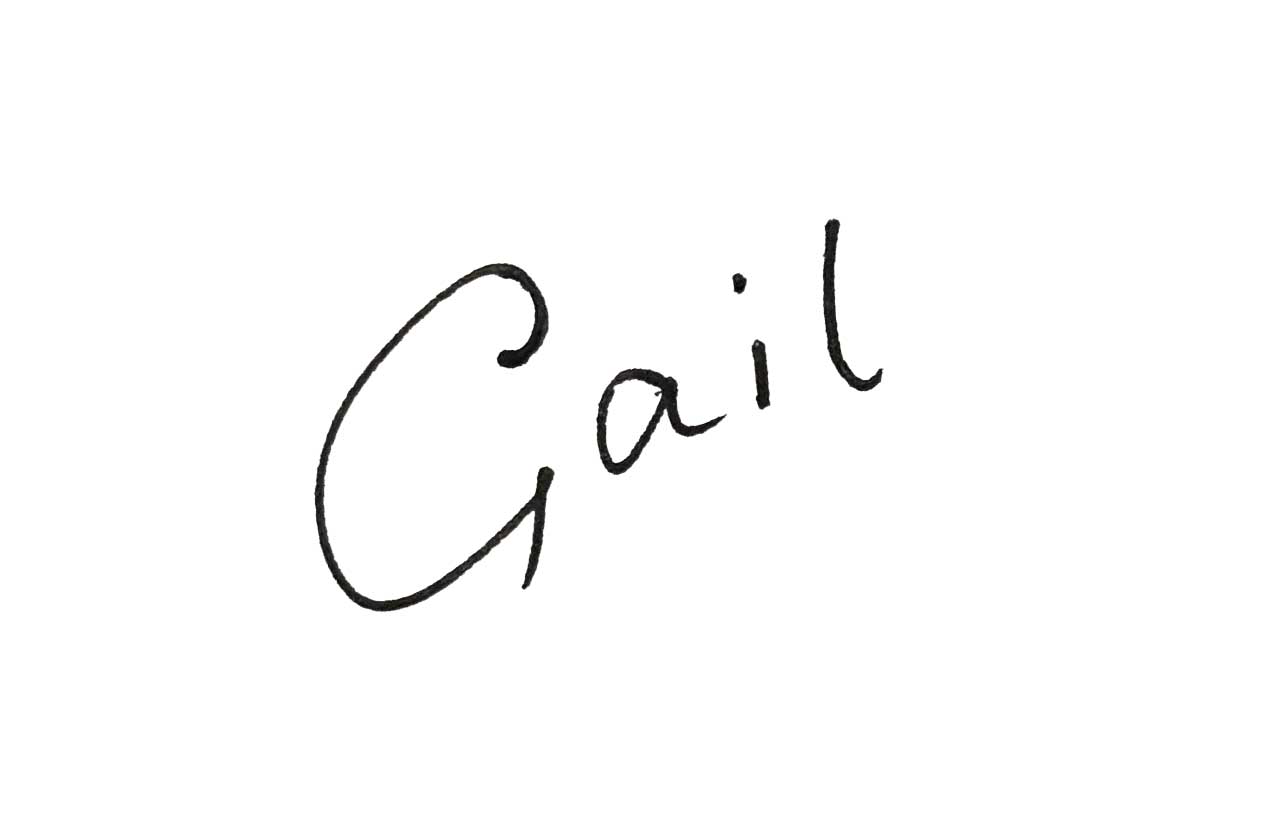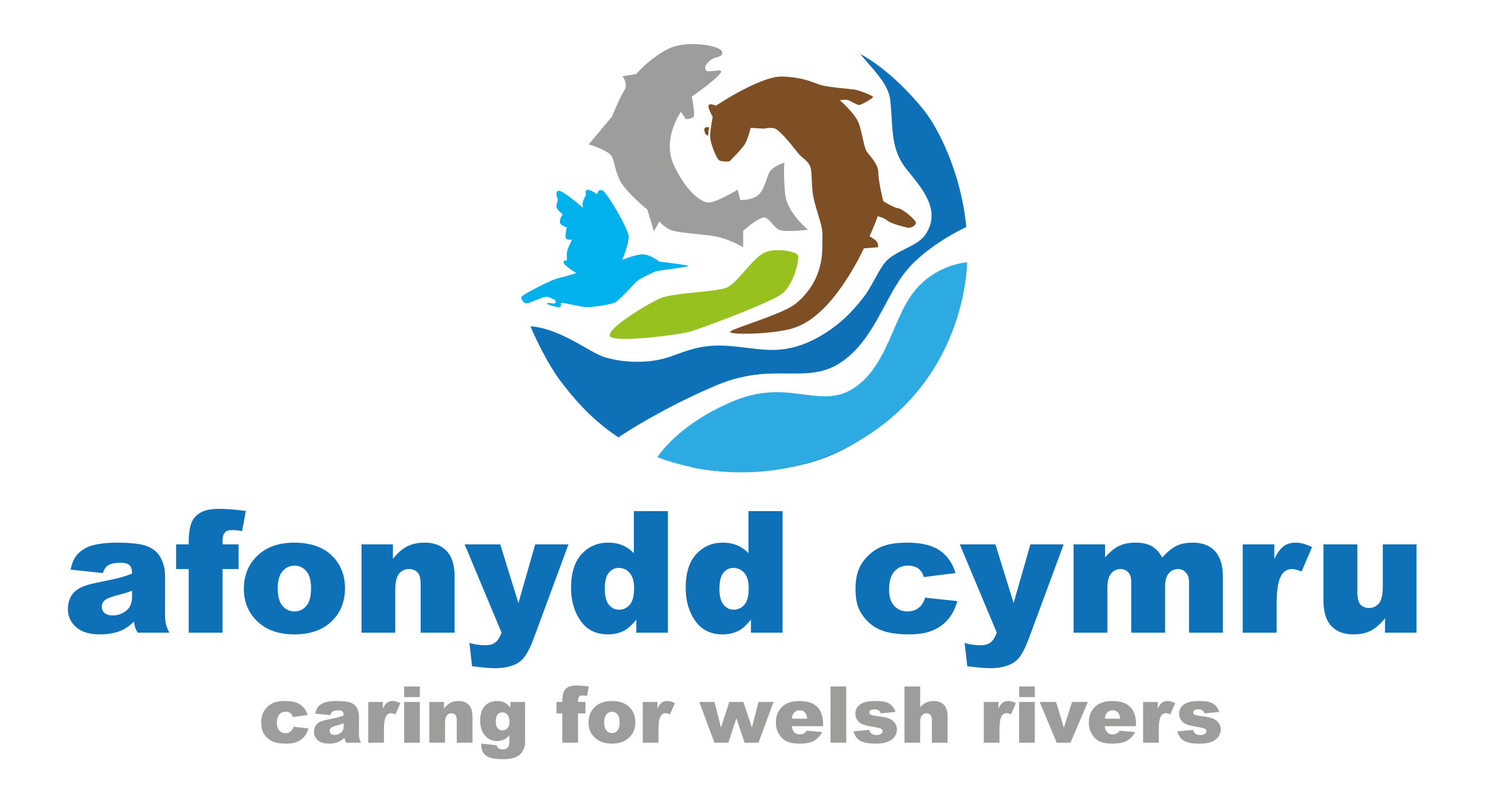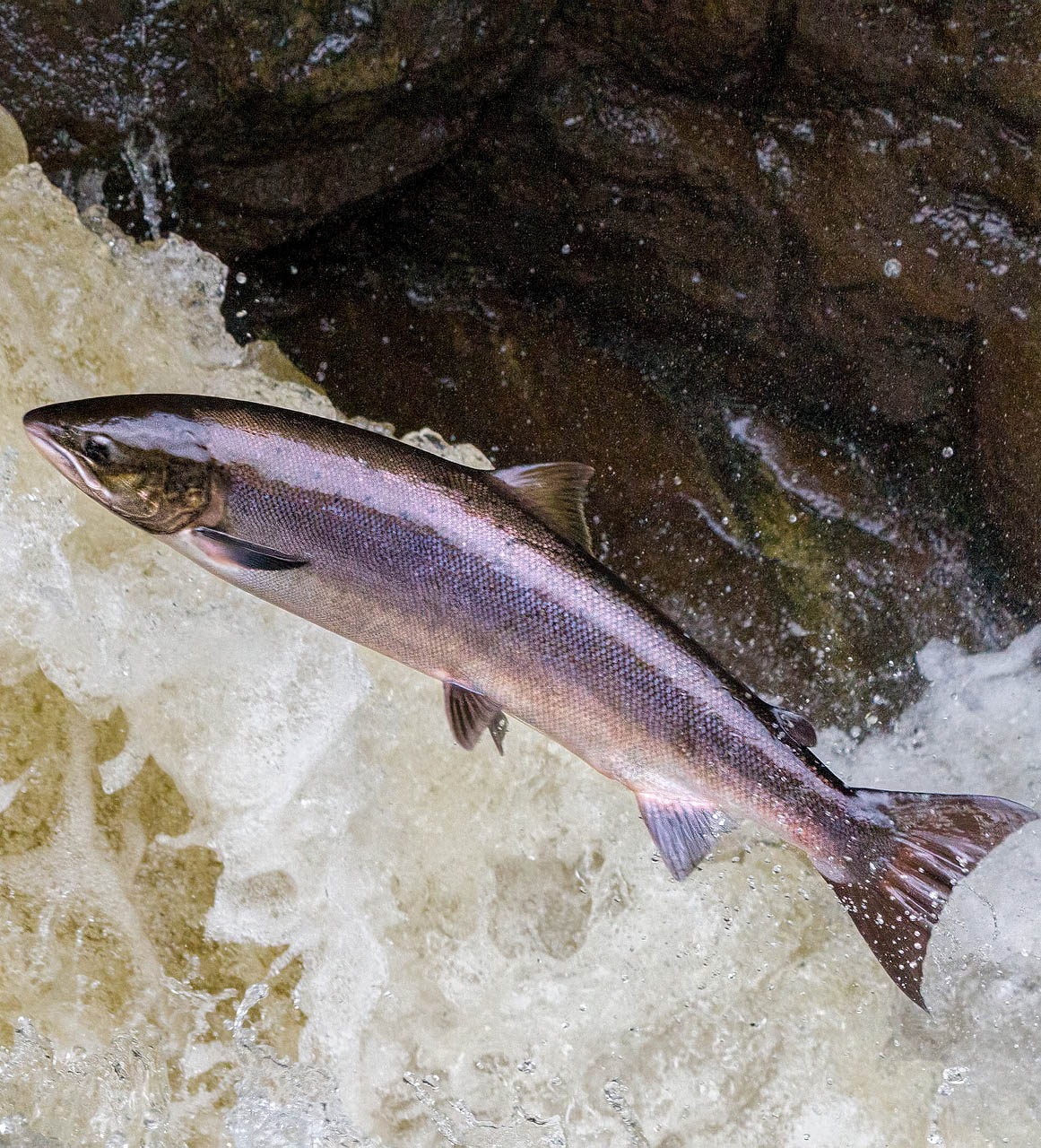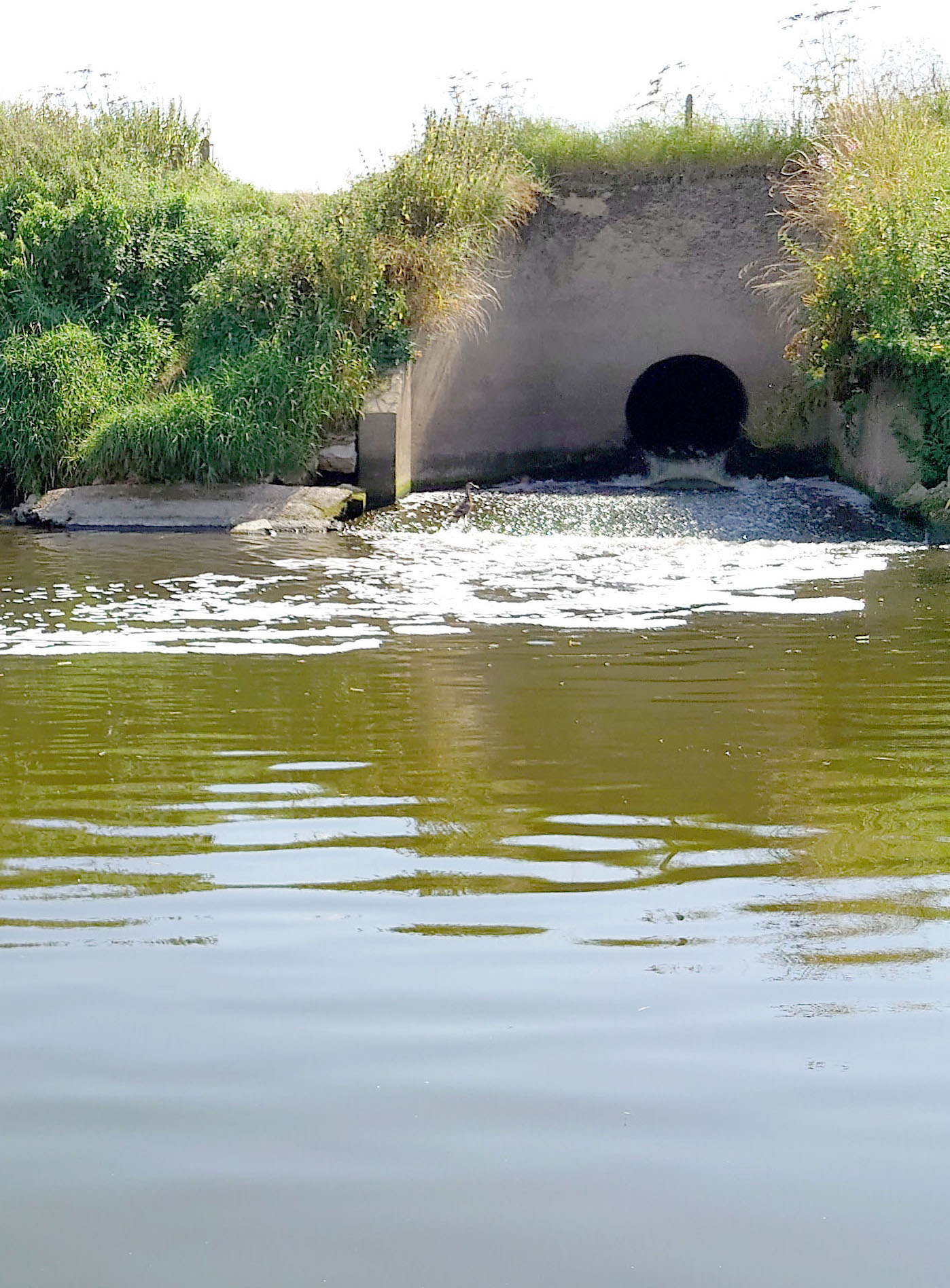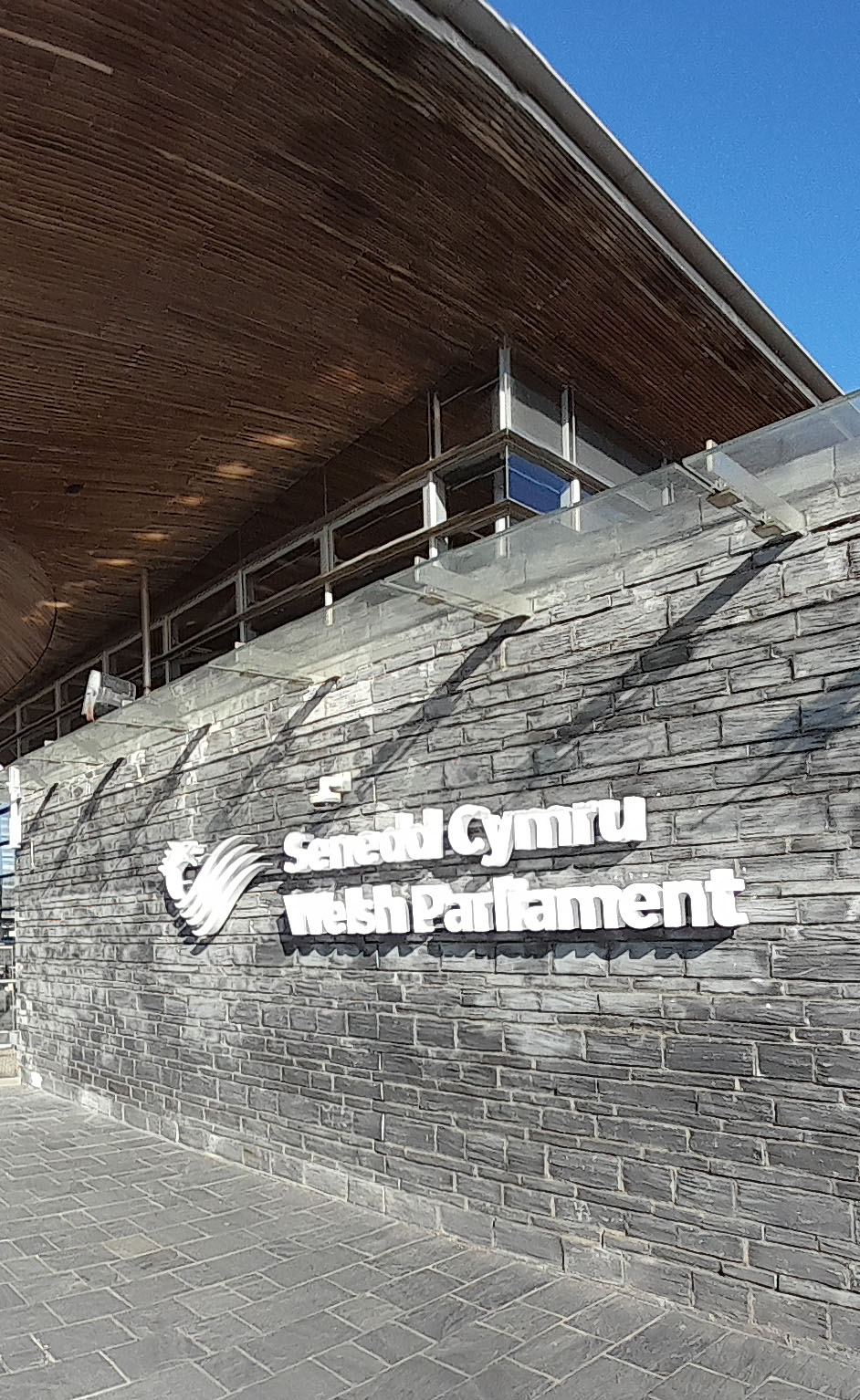Atlantic salmon (pictured) and sea trout are at risk of extinction in every river in WalesÂ
We need a financial regulator that ensures water companies deliver on their investment obligations, an environmental regulator that enforces and protects our designated species and habitats, and to know the evidenced source of failures.
Thursday 22nd December, 2022
As the year 2022 draws to an end, it’s a good time to reflect on the last twelve months and think about the challenges that lie ahead.
Afonydd Cymru is a small organisation: there are just three of us along with some very committed volunteers! We have secured this team in 2022 through continued support from Esmee Fairbairn Foundation and the Fishmongers Company, and from our wonderful regional rivers trusts for whom we provide advocacy and support. We have a single vision: clean, healthy rivers for every community in Wales.
And yet all is not well with Welsh rivers. We have a biodiversity and climate change crisis, five SAC rivers failing their phosphate targets, all designated species in unfavourable condition and only 40% of rivers in good ecological status. That is not mentioning, of course, our salmon and sea trout being at risk of extinction in every river in Wales.
At a sweltering phosphate summit in July, the First Minister of Wales called for every sector to ‘own’ their contribution to the excessive nutrient problem and other pressures on Welsh rivers. This ownership is still yet to be seen and we have therefore started to call it out, at every level and in every sector. Because ownership is the first step to making a change.
Ownership of a problem is the first step in making a change. We are yet to see this happen for Welsh rivers
We also need a financial regulator that ensures water companies deliver on their investment obligations, an environmental regulator that enforces and protects our designated species and habitats, and to know the evidenced source of failures.
2022 was another extremely busy year for Welsh rivers trusts who have been running projects in areas such as habitat restoration, fish migration, citizen science, water quality improvement, education and community engagement. In fish migration alone, 35 easement projects have been completed this year, despite being hampered by chronic delays in funding reaching us. We have also supported the design of ten integrated wetlands (four in England) with the sole purpose of nutrient removal from our rivers.
Is it enough? Of course not. We want to increase our community engagement next year, to provide and support educational material in Wales and to connect people even more with their rivers. We have funding to deliver much more river restoration and we will seek to expand this further. Water companies are currently asking what they need to do between 2025-2030 and we urge everyone to have a say at their consultation event (date to be confirmed). The licensing regime for the Agricultural Regulations is also currently out for consultation and we look forward to seeing them moving forward and acted upon. The second phosphate summit will be held in February 2023 and we will challenge the progress made since that roasting day in July.
In order for Afonydd Cymru to fulfill its purpose, we must navigate our way around the often suffocating complexities of the environmental arena ““ the problems, the legislation, the politics, the number of organisations involved and the seemingly endless list of fora, committees and consultations. It is our job to make representations to all of these on behalf of the rivers trust network in Wales, of anyone interested in the aquatic world and, of course, the rivers themselves. This isn’t always easy but I hope we communicate what is happening in as clear a way as possible.Â
To be effective, Afonydd Cymru has to navigate its way around the suffocating complexities of the environmental world and communicate what is going on in as clear a manner as possible
Wales has an opportunity to be different and to stand above the crowd. We have already shown we can do this: Sustainable Urban Drainage is already a requirement of new houses while in England it still waits to be implemented. We have biodiversity requirements to ensure maximum resilience, not an arbitrary fixed percentage gain. Meanwhile, the Sewer Overflow Action Plan commits to zero ecologically harmful discharges by 2030. This week, there was great news on the Single-Use Plastic Ban in Wales (although we still need to sort out wet wipes).
So, we finish 2022 with commitments and promise but 2023 must bring step change for rivers. It must bring ownership and it must bring action.
Nadolig llawen a Blwyddyn Newydd dda!
